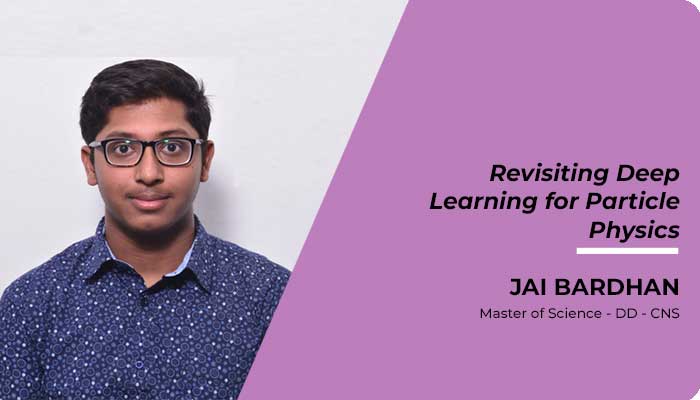Jai Bardhan received his Master of Science – Dual Degree in Computational Natural Sciences (CNS). His research work was supervised by Dr.Subhadip Mitra. Here’s a summary of his research work on Revisiting Deep Learning for Particle Physics:
The Large Hadron Collider (LHC) experiment is searching for exotic beyond the Standard Model signal processes. These processes occur at extremely low rates compared to the standard model ones making it difficult to extract these signals effectively. Classical cut-based methods that rely heavily on hand-crafted strategies fail to perform well on these exotic signals. For the next stage of runs at LHC, there is an urgent need to develop newer algorithms that are more capable of identifying these rare signals. Deep learning methods have recently gained traction to assist these searches due to their exceptional ability to analyse complex patterns and show immense potential to improve the sensitivity of experiments. In this thesis, I describe a few approaches to adapt and incorporate deep learning techniques into collider experiments. First, I present a case study of a phenomenological search for a hypothetical heavy quark, where I augment the standard search strategy with a simple deep-learning model to yield better sensitivity and reach. In the case study, I also discuss the caveats of such methods and point to a potential solution. Secondly, I present a simple adaptation of the deep learning training strategy to align it with physics goals. Specifically, I study modifications to the standard Cross Entropy loss and propose a new loss function, based on the Lovasz extension, to directly optimize the sensitivity metric (Z-score). Finally, I present a novel generative model based on the GAN (Generative Adversarial Framework) to generate particle jets. This model can be used to quickly generate jets from different processes and assist jet studies.
June 2023

